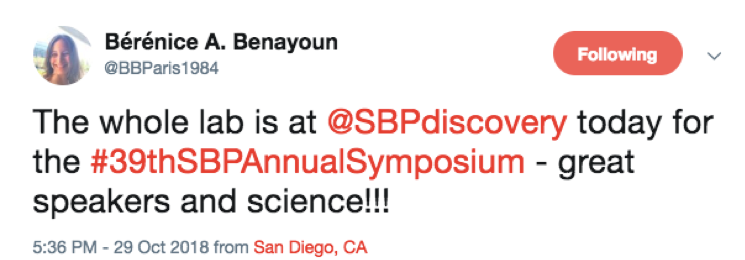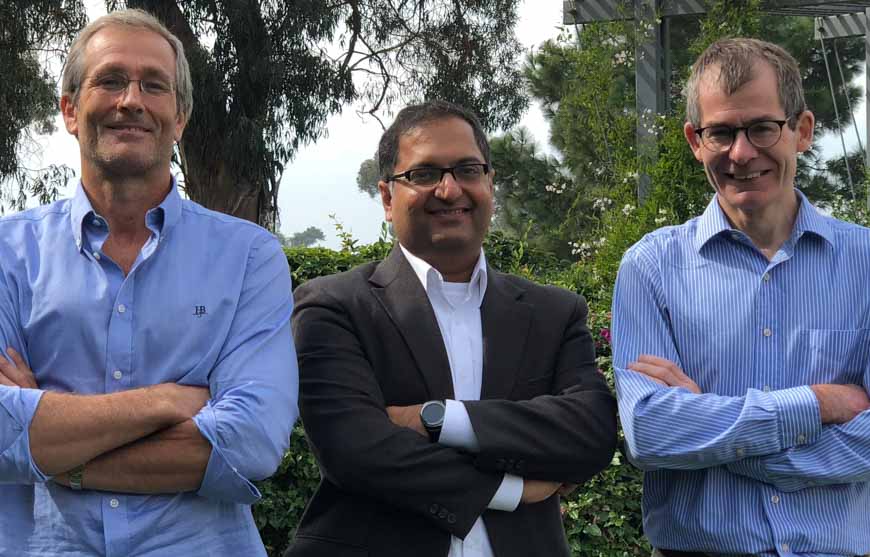DNA contains more information than scientists previously thought. A booming field of research called epigenetics is uncovering DNA alterations that affect whether genes are turned on or off—without changing a single base pair.
These epigenetic changes may be physical, such as winding or unwinding DNA to change its accessibility—akin to opening or closing a door. Other changes can be chemical, such as adding molecular tags that turn genes on or off—like a highlighter calling out special text to a reader.
On October 29, 2018, more than 300 scientists gathered at SBP’s 39th Annual Symposium to hear the latest connections between epigenetics and development, aging, and diseases such as cancer. Researchers are particularly interested in this field because modifying epigenetic changes could be easier than editing the body’s underlying genetic code—and advances are leading to new medicines.
Organized by SBP professors Peter Adams, PhD; Ani Deshpande, PhD; and Lorenzo Puri, MD, PhD, the event’s speakers hailed from Harvard Medical School, Massachusetts Institute of Technology, Stanford University and other world-renowned institutions.

praised the symposium on Twitter
After a welcome by SBP’s President Kristiina Vuori, MD, PhD, talks commenced on topics ranging from the role of epigenetics in prostate cancer, development of the heart and aging. Unpublished work was frequently presented, meaning that attendees received the most up-to-date results available.
A full list of speakers is listed below. To read more insights, follow #SBPsymposium on Twitter. And be sure to look out for next year’s symposium, which will focus on neurodegenerative diseases.
- Anne Brunet, Stanford University – Epigenetic and metabolic regulation of aging
- Chris Glass, University of California, San Diego – Nature and nurture of tissue resident macrophages
- Cigall Kadoch, Dana-Farber Cancer Institute and Harvard Medical School – Structure and function of mammalian SWI/SNF complexes in human cancer
- Manolis Kellis, Massachusetts Institute of Technology – From genomics to therapeutics: dissection and manipulation of human disease circuitry at single-cell resolution
- Peter Lewis, Wisconsin Institute for Discovery – Mechanistic dissection of oncogenic histone mutations
- Barbara Meyer, University of California, Berkeley – Dynamic control of X-chromosome topology and gene expression during development via chromatin modification and condensing
- Raul Mostoslavsky, Harvard Medical School – Linking epigenetics, metabolism and cancer: new clues from SIRT6
- Bing Ren, University of California, San Diego – Remodeling of chromatin organization during human cardiomyocyte differentiation
- Peggy Farnham, University of Southern California – CRISPR-mediated deletion of prostate cancer risk elements identifies repressive chromatin loops
